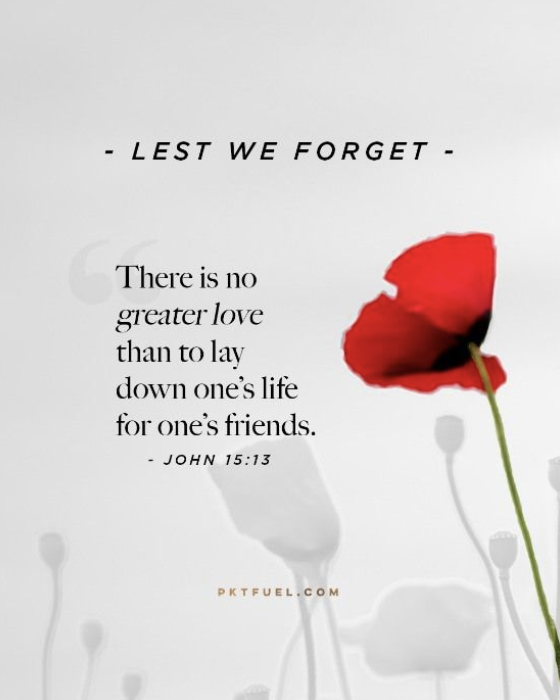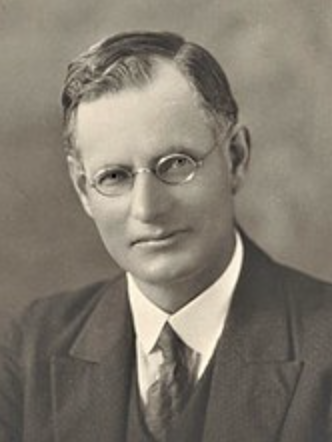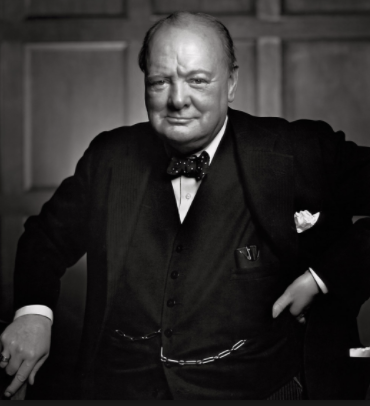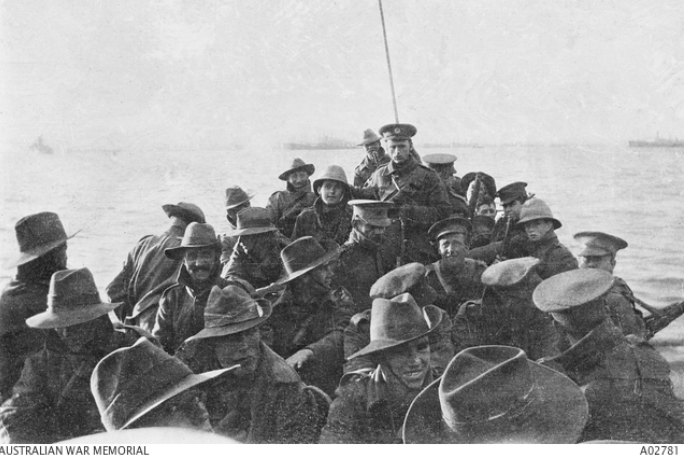
Uncle Tom
My great Uncle Tom Travers joined the army at the outbreak of the First World War. He did not take to army discipline, and was in trouble at various times. Uncle Tom was born at Eurowrie, on the Silver City Highway, 60 miles north of Broken Hill. He left school at 14, like most children those days. He worked as a carpenter with his father, who built houses for miners in the north-west corner of New South Wales. Uncle Tom had been a champion boxer. Uncle Tom fought at Gallipoli in 1915.
At some stage it was suggested that Uncle Tom attempted to desert – or more specifically, he was found on a train heading away from the front line. Later, in 1917 Uncle Tom was shot at least twice, in the right wrist and the right arm, while fighting in the trenches in northern France. Uncle Tom, despite his contempt for authority, was promoted to Sergeant on the battlefields of France. Uncle Tom’s citation for the Military Medal stated that he showed outstanding courage and gallantry under fire.
My father recalls Uncle Tom as a giant of a man, who never spoke of his war experiences, but found it difficult to settle down. Uncle Tom lived most of his life after the First World War in Broken Hill, and Mt Isa, working as a carpenter. Uncle Tom was a likeable and adventurous man, much loved by his family. He was a serious drinker, something which Grandma Travers could not abide – which is, perhaps, why he went to Mt Isa. According to my father, Uncle Tom was a larrikin but did his duty.
John Curtin

John Curtin was Prime Minister of Australia from 1941 until his death in 1945. The attack on Pearl Harbour occurred two months after Curtin became Prime Minister followed by Japanese bombing of Darwin. Curtin placed Australian forces under the command of American General Douglas Macarthur. Forever, Curtin changed Australian defence and foreign policy with his 1942 New Year’s message:
Without any inhibitions of any kind, I make it clear that Australia looks to America, free of any pangs as to our traditional links or kinship with the United Kingdom. We know the problems that the United Kingdom faces. We know the dangers of dispersal of strength, but we know too, that Australia can go and Britain can still hold on. We are, therefore, determined that Australia shall not go, and we shall exert all our energies towards the shaping of a plan, with the United States as its keystone, which will give to our country some confidence of being able to hold out until the tide of battle swings against the enemy.
Curtin was, at first glance, an unpromising Prime Minister – a militant anti-conscriptionist in the First World War; a one-time supporter of the Victorian Socialist Party, a Marxist outfit; suffering the physical and psychiatric consequences of long-time alcoholism. Yet he had long years of union and political experience.And Curtin stopped drinking. Apart from leading the war effort, Curtin laid the foundation of Australian independence with the Statute of Westminster Adoption Act 1942, and expanded the availability of social security to Australians and their families. Arguably Curtin is Australia’s greatest prime minister.
Sir Winston Churchill

With the fall of Neville Chamberlain in 1940, Churchill became Prime Minister of Great Britain. Europe had largely fallen to the Nazis. The evacuation at Dunkirk was a sort of victory as the rag tag fishing boats and yachts captained by amateurs returned British servicemen to safety in England. About this time Churchill gave his most memorable speech in the House of Commons:
Let us brace ourselves to our duties, and so bear ourselves that, if the British Empire and its Commonwealth last for a thousand years, men will still say, ‘This was their finest hour’.
The Battle of Britain over English skies was a disaster for Londoners, but a triumph of English resilience despite the odds.
There have been various criticisms of Churchill’s leadership – he attacked the French fleet in Algeria to prevent it falling into German hands, with loss of lives of 1300 French sailors; he expended, arguably, excessive resources on the Mediterranean campaign; he delayed the D-Day invasion; he could have done more, having regard to available intelligence from Bletchley Park, to prevent German bombing of the cathedral city of Coventry; at Yalta he gave in to Stalin, imposing an Iron Curtain on eastern Europe; he ought not have ordered bombing of the German cities of Dresden and Hamburg; he gave insufficient consideration to resisting Japanese advances in the Pacific, and the defence of Australia. Yet Churchill’s dogged resistance to totalitarianism makes him arguably the most important world political figure in the twentieth century.
Where would we have been?
Uncle Tom Travers, John Curtin, and Sir Winston Churchill each had their flaws, but each matured in war. We can admire and honour them for their courage, for their prudence, for their self-sacrifice – and we can acknowledge that we are forever in their debt.
If Sir Winston Churchill had not stood alone against Adolf Hitler in 1940, where we would be today? While it may be argued that the Second World War did not end until 1989 with the collapse of communist tyranny in Eastern Europe, we should especially honour Sir Winston Churchill, the Londoners who withstood the Blitz, and the people of Great Britain, because they stood alone when it seemed that the whole of Europe had succumbed to tyranny, – and when the United States stood back.
If the United States had not come to Australia’s rescue in 1942, where would we be today? If the Battle of the Coral Sea (1942), and the Battle of Midway (1942) had not been fought by the United States, where would we be today? Those were the sea battles which turned the war against Japan. If the United States had not eventually resisted Soviet encroachment in eastern Europe where would we be today?
Ultimately, the Iron Curtain came down, but not until 1989, as a result of the efforts of the US President Ronald Reagan, Soviet President Mikhail Gorbachev, and, perhaps, most importantly, Pope St John Paul II. If the United States had not come to Australia’s rescue in 1942, where would we be today?
If John Curtin had not resisted Japanese aggression in 1942 and following, where would we be today? If Australian soldiers had not fought and died in the jungle of Kokoda, where would we be today?
We might also say, if Australia had not put aside old hatreds, old grievances after the war with Japan, where would we be today?
Anzac Day

ANZAC Day is a tradition which originates with the unsuccessful landings of the British forces at Gallipoli on 25 April 1915, intended to capture the Gallipoli Peninsula, open the way to the Black Sea, and enable the conquest of Constantinople. The Ottoman forces were led by Mustafa Kemal (later known as Attaturk), the founder of modern Turkey, who had this to say:
Those heroes that shed their blood
And lost their lives
You are now lying in the soil of a friendly country.
Therefore rest in peace.
There is no difference between the Johnnies and the Mehmets to us where they lie side by side
Here in this country of ours.
You, the mothers who sent their sons from faraway countries,
Wipe away your tears,
Your sons are now lying in our bosom
And are in peace
After having lost their lives on this land they have
Become our sons as well.
Amongst the traditions of ANZAC Day are the Gunfire Breakfast after the Dawn Services, involving the drinking of coffee loaded with rum, the playing of two-up, and Australian Rules, and Rugby League. Although there will be no March this year, because of the coronavirus pandemic, the ANZAC tradition will not be lost.
Australians at War
Australians have fought in many wars including:
- the Sudan War (1885),
- the Boer War (1899-1902),
- the Boxer Rebellion (1900-1901),
- the First World War (1914-18),
- the Russian Civil War (1918-19),
- the Second World War (1939-45)
- the Korean War (1950-53),
- the Malayan Emergency (1950-60),
- the Indonesia-Malaysia Confrontation (1962-66),
- the Vietnam War (1962-73),
- the Gulf War (1991),
- East Timor (1999-2013),
- Afghanistan (2001 and on),
- Iraq (2003-11).
Each of these wars can be considered, historically and ethically, from the perspective of time, more or less, long past. While doing so, we honour the combatants on both sides for their courage, and remember also the people of the countries where those wars were fought. No doubt they were persons of their times. But who is not?
War and Peace
The Commandment – thou shalt not kill – is an injunction against anger and hatred. As the Catechism says, anger involves a desire for revenge. “Everyone who is angry with his brother shall be liable to judgment” (Mt 5:22). Hatred deliberately wishes harm to one’s neighbour. “But I say to you, love your enemies and pray for those who persecute you, so that you may be sons of your Father who is in heaven” (Mt 5:44-45).
Peace
Respect for human life requires peace. Peace is not merely the absence of war, nor a balance of power between adversaries. Peace cannot be attained without respect for persons, and respect for the dignity of persons and peoples. Peace is the work of justice and the effect of charity. Earthly peace is the image and fruit of the peace of Christ. By his suffering and death, Christ reconciled us with God, and made his Church the sacrament of the unity of humanity, and of its union with God. Christ is our peace. Blessed are the peacemakers (Mt 5:9). We are urged to prayer and action so that God may free us from war. All citizens and governments are obliged to work for the avoidance of war, for peace.
Just War
As long as there is no international authority with appropriate competence and power, governments cannot be denied the right of lawful self-defence, once all peace efforts have failed. The strict conditions for legitimate defence by military force require at one and the same time:
- The damage inflicted by the aggressor must be lasting, grave and certain (lasting, grave and certain damage).
- All other means of putting an end to the aggression must be impractical or ineffective (no other means).
- There must be serious prospects of success (reasonable prospects).
- The use of arms must not produce evils and disorders graver than the evil to be eliminated (proportionality).
The evaluation of these conditions for the legitimacy of war belongs to the prudential judgment of those who have responsibility for the common good.
Soldiers
Those who serve their country in the armed forces are the servants of the security and freedom of nations. If they carry out their duty honourably, they contribute to the common good of the nation and the maintenance of peace. The same may be said of leaders in wartime who are required to exercise leadership in difficult circumstances.
Not Everything Justified
The mere fact that war has regrettably broken out does not mean that everything becomes licit between warring parties. All is not fair in in war. Non-combatants, wounded soldiers, and prisoners must be respected and treated humanely. Actions deliberately contrary to the law of nations and its universal principles are crimes, as are orders that command such action. Blind obedience does not justify actions contrary to the natural law. Thus, the extermination of a people, nation or ethnic minority is a mortal sin. One is morally bound to resist orders that command genocide.
Mass Destruction
Every act directed to the indiscriminate destruction of whole cities or vast areas with their inhabitants is a crime against God and man, which merits firm and unequivocal condemnation. A danger of modern warfare is that it provides the opportunity to those who possess modern scientific weapons – especially atomic, biological or chemical weapons – to commit such crimes.
Arms Race
The arms race does not ensure peace. Far from eliminating the causes of war, it risks aggravating the causes of war. Spending enormous sums to produce ever new types of weapons impedes efforts to aid needy populations. Over-armament multiplies reasons for conflict and increases the danger of escalation. The production and sale of arms affects the common good of nations and of the international community. Public authority has the right and duty to regulate the production and sale of arms. Short-term pursuit of private or collective interests does not legitimate violence and conflict among nations and compromise of international legal order.
Honour, Respect and Admiration
One does not have to form a conclusive judgment on every war in which Australians have fought, on every Australian action, to honour, respect and pray for Australian servicemen, and indeed for the combatants against whom they fought, and for the peoples of the lands in which they fought. We remember with honour, respect and admiration Uncle Tom Travers, Prime Minister John Curtin, and Sir Winston Churchill – and the ANZACS and the Turkish soldiers against whom the ANZACS fought at Gallipoli – and all Australian combatants, as well those against whom they fought – and pray for peace.
Michael McAuley
